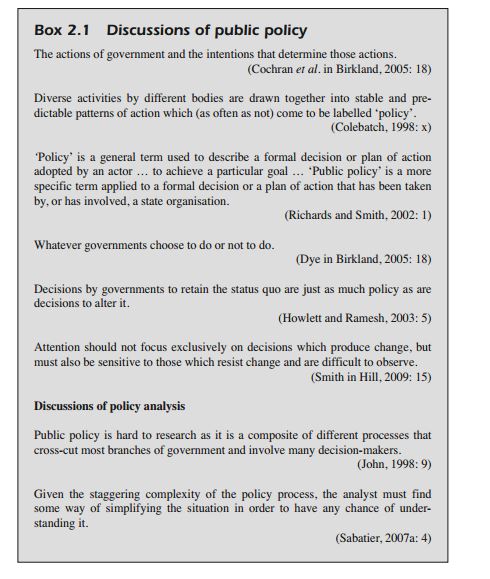A key response to the Scottish Government’s White Paper on independence is that many of its policy aims could be achieved now. The strongest version of this argument is that the SNP is being cynical by making some policy commitments and refusing to carry them out now before the referendum vote – and the Better Together campaign has reinforced this argument with a recent poll on childcare . This line reinforces a longer term argument – that we should not consider giving Scottish Governments more powers when they are not using the ones they have already. It has become the reverse of the SNP’s longstanding argument: since we’re doing this well now, imagine how well we’d do with more powers.
Behind the campaign bickering lies an important point for the public perception of this debate: relatively few people know enough about devolution to tell you what responsibilities the Scottish Government already has and how it has used them. Few people know, for example, how many MSPs there are , the difference between the Scottish Government and Scottish Parliament , what the Scottish Government gets up to , and quite a low number could give you a definitive answer about who is responsible for issues such as health , education , and unemployment benefit .
Consequently, the statement ‘use the powers you have’ is difficult for most people to interrogate. This is a doubly-difficult issue because the statement could conflate two points: (1) you have not used your powers; (2) you have not used them effectively. The first point does not seem to stand up to scrutiny if we look at the experience of devolution. Even if we just look at the highest profile examples , there is a decent list of Scottish Government/ Parliament activity and outputs based on devolved powers (which include areas such as health, education, local government and justice). In order of parliamentary session, we can identify:
- The review of Scottish higher education which reformed tuition fee funding and led to the abolition of student fees, as fees rose to £9000 in England.
- The commitment to ‘free personal care’ for older people
- The Scottish Government taking the lead on mental health law reform in areas such as capacity and compulsory treatment
- The resolution of tensions between unions, local authorities and government on teacher pay and conditions, and reform of the curriculum
- The removal of Scotland’s NHS ‘internal market’ while it was being expanded in England
- The introduction of STV for local elections
- The ban on smoking in public places
- The pursuit of alcohol control, including legislation to introduce a minimum unit price
- The pursuit of renewable energy policy and postponement or rejection of nuclear power
- The pursuit of new ways of working with bodies such as local authorities
The difficulty with simply producing a list is that lots of people do not approve of the decisions made by the Scottish Government. Or, they argue that these actions have had limited or unintended effects (and they might add ‘given the money the Scottish Government threw at them’). For example, many have jumped upon the LSE blog which suggests that devolution has not improved inequality of outcomes in Scottish schools. This allows critics of devolution to use argument (2) you may have used your powers, but you have not used them effectively.
It is worth being sceptical about these claims in general because the evaluation of success and failure is highly political . It is particularly easy to say that a series of Scottish governments has failed because all governments fail . There is also a specific problem in Scotland just now: these claims are now becoming intertwined with people’s attitudes and arguments about devolution and independence. Following many of these evaluations of performance is the sentence ‘and therefore you should/ shouldn’t have independence’, when the more honest person would say ‘I support/ don’t support independence and therefore here is my evaluation’.
It is also worth thinking about what this sort of argument really amounts to. It is legitimate to say that constitutional change does not solve policy problems (of course it doesn’t), but the argument that devolution has failed and that independence would make things better/ worse seems like a cynical attempt to exploit people’s lack of knowledge of devolution and lack of appreciation about the political nature of evaluation.
Childcare
Let’s take the example of childcare, since it now represents a key focus of both campaigns and has become a beacon for the ‘we can do more’ versus the ‘you have the powers/ use your powers now’ arguments. The relevant part of Scotland’s Future is p194:
In an independent Scotland, this Government would develop a universal system of high quality early learning and childcare for children from the age of one to when they enter school. We will:
- in our first budget: provide 600 hours of childcare to around half of Scotland’s two year olds. Those whose parents receive working tax credit or child tax credit will benefit
- by the end of the first Parliament: ensure that all three and four year olds and vulnerable two year olds will be entitled to 1,140 hours of childcare a year (the same amount of time as children spend in primary school)
- by the end of the second Parliament: ensure that all children from one to school age will be entitled to 1,140 hours of childcare per year
This transformational change to childcare in Scotland will allow parents, in particular women, to choose to work without worrying about the cost of looking after their children. With independence the benefits of their work – in economic growth and tax revenues – will stay in Scotland, contributing to meeting the cost of this childcare provision.
Just to annoy you, I’m going to say that both sides have a point. The BT campaign is right to say that this agenda can be pursued now, and the SNP would not fully disagree. The ‘600 hours’ commitment is currently being pursued in the Children and Young People Bill going through the Scottish Parliament. It would also be possible to fund a lot of the expansion from a devolved budget, provided the Scottish Government was prepared to take the money from other programmes (the figure being bandied around is £1.2b). In that sense, it is a simple question of priorities. The only problem so far is that you can’t see the general agreement among most parties (most think expanding childcare is a good thing) for all the nitpicking about the details. The ‘use your powers now’ argument also seems, at times, to be disingenuous since it refers largely to what is going on already (the Scottish Government is using its powers now) than the longer term vision.
The bigger question is how to secure ‘transformative’ childcare provision. This is where the constitutional argument plays a greater part, since the SNP line is that they want to fund childcare expansion by borrowing to invest in facilities and training, then recoup the money in more taxes as more people go to work. This is a constitutional argument based on calling for more tax powers. Other Yes supporters argue for a reduction on spending on defence, to be used for childcare (the most recent is here). That is also a constitutional argument, based on securing all powers to decide which ones to fund more or less.
You may not like these arguments. You may think that these aims are unrealistic or simply misguided. However, these are the sorts of ‘more powers’ arguments that are not addressed simply with ‘use the powers you have’.











